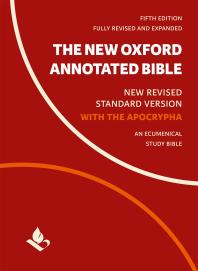 The New Oxford Annotated Bible with Apocrypha: New Revised Standard Version is one of the most popular study bibles. This fifth edition of this thoroughly revised and substantially updated edition contains the best scholarship informed by recent discoveries and anchored in the solid Study Bible tradition. In addition to a translation of the Bible, it includes essays, maps, diagrams, timelines, glossary, and an index.
The New Oxford Annotated Bible with Apocrypha: New Revised Standard Version is one of the most popular study bibles. This fifth edition of this thoroughly revised and substantially updated edition contains the best scholarship informed by recent discoveries and anchored in the solid Study Bible tradition. In addition to a translation of the Bible, it includes essays, maps, diagrams, timelines, glossary, and an index.
 The Oxford Handbook of Biblical Studies offers an authoritative and up-to-date survey of original research in biblical studies. The forty-five articles have been written by leading international figures in the discipline, who give critical examinations of the progress and direction of debates in this highly technical and diverse field. Study of the Bible demands expertise in fields ranging from Archaeology, Egyptology, Assyriology, and Linguistics through textual, historical, and sociological studies to Literary Theory, Feminism, Philosophy, and Theology, to name but a few. Student or Faculty Login Required
The Oxford Handbook of Biblical Studies offers an authoritative and up-to-date survey of original research in biblical studies. The forty-five articles have been written by leading international figures in the discipline, who give critical examinations of the progress and direction of debates in this highly technical and diverse field. Study of the Bible demands expertise in fields ranging from Archaeology, Egyptology, Assyriology, and Linguistics through textual, historical, and sociological studies to Literary Theory, Feminism, Philosophy, and Theology, to name but a few. Student or Faculty Login Required
 Comprised of contributions from scholars across the globe, The Oxford Handbook to Biblical Narrative offers critical treatments of both the Bible’s narratives and topics related to the Bible’s narrative constructions. The volume as a whole combines literary sensitivities with the traditional historical and sociological questions of biblical criticism and puts biblical studies into intentional conversation with other disciplines in the humanities. It reframes biblical literature in a way that highlights its aesthetic characteristics, its ethical and religious appeal, its organic qualities as communal literature, its witness to various forms of social and political negotiation, and its uncanny power to affect readers and hearers across disparate time-frames and global communities. Student or Faculty Login Required
Comprised of contributions from scholars across the globe, The Oxford Handbook to Biblical Narrative offers critical treatments of both the Bible’s narratives and topics related to the Bible’s narrative constructions. The volume as a whole combines literary sensitivities with the traditional historical and sociological questions of biblical criticism and puts biblical studies into intentional conversation with other disciplines in the humanities. It reframes biblical literature in a way that highlights its aesthetic characteristics, its ethical and religious appeal, its organic qualities as communal literature, its witness to various forms of social and political negotiation, and its uncanny power to affect readers and hearers across disparate time-frames and global communities. Student or Faculty Login Required
The focus of The Oxford Handbook of Ritual and Worship in the Hebrew Bible is on ritual and worship from the perspective of biblical studies, particularly on the Hebrew Bible and its ancient Near Eastern antecedents. Within this context, attention will be given to the development of ideas in Jewish, Christian, and Muslim thinking, but only insofar as they connect with or extend the trajectory of biblical precedents. The volume reflects a wide range of analytical approaches to ancient texts, inscriptions, iconography, and ritual artifacts. It examines the social history and cultural knowledge encoded in rituals, and explores the way rituals shape and are shaped by politics, economics, ethical imperatives, and religion itself. Student or Faculty Login Required
 First published in 2004, The Jewish Study Bible is a landmark, one-volume resource tailored especially for the needs of students of the Hebrew Bible. It has won acclaim from readers in all religious traditions. The Jewish Study Bible combines the entire Hebrew Bible--in the celebrated Jewish Publication Society TANAKH Translation--with explanatory notes, introductory materials, and essays by leading biblical scholars on virtually every aspect of the text, the world in which it was written, its interpretation, and its role in Jewish life. This second edition includes revised annotations for nearly the entire Bible, as well as forty new and updated essays on many of the issues in Jewish interpretation, Jewish worship in the biblical and post-biblical periods, and the influence of the Hebrew Bible in the ancient world. Student or Faculty Login Required
First published in 2004, The Jewish Study Bible is a landmark, one-volume resource tailored especially for the needs of students of the Hebrew Bible. It has won acclaim from readers in all religious traditions. The Jewish Study Bible combines the entire Hebrew Bible--in the celebrated Jewish Publication Society TANAKH Translation--with explanatory notes, introductory materials, and essays by leading biblical scholars on virtually every aspect of the text, the world in which it was written, its interpretation, and its role in Jewish life. This second edition includes revised annotations for nearly the entire Bible, as well as forty new and updated essays on many of the issues in Jewish interpretation, Jewish worship in the biblical and post-biblical periods, and the influence of the Hebrew Bible in the ancient world. Student or Faculty Login Required
 The Blackwell Companion to the New Testament offers a detailed introduction to the New Testament, written by more than 40 scholars from a variety of Christian denominations. Treats the 27 books and letters of the New Testament systematically, beginning with a review of current issues and concluding with an annotated bibliography Considers the historical, social and cultural contexts in which the New Testament was produced, exploring relevant linguistic and textual issues An international contributor list of over 40 scholars represent wide field expertise and a variety of Christian denominations Distinctive features include a unified treatment of Luke through Acts, articles on the canonical Gospels, and a discussion of the apocryphal New Testament Student or Faculty Login Required
The Blackwell Companion to the New Testament offers a detailed introduction to the New Testament, written by more than 40 scholars from a variety of Christian denominations. Treats the 27 books and letters of the New Testament systematically, beginning with a review of current issues and concluding with an annotated bibliography Considers the historical, social and cultural contexts in which the New Testament was produced, exploring relevant linguistic and textual issues An international contributor list of over 40 scholars represent wide field expertise and a variety of Christian denominations Distinctive features include a unified treatment of Luke through Acts, articles on the canonical Gospels, and a discussion of the apocryphal New Testament Student or Faculty Login Required
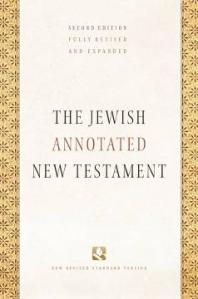 First published in 2011, The Jewish Annotated New Testament was a groundbreaking work, bringing the New Testament's Jewish background to the attention of students, clergy, and general readers. In this new edition, eighty Jewish scholars bring together unparalleled scholarship to shed new light on the text. This thoroughly revised and greatly expanded second edition brings even more helpful information and new insights to the study of the New Testament. Student or Faculty Login Required
First published in 2011, The Jewish Annotated New Testament was a groundbreaking work, bringing the New Testament's Jewish background to the attention of students, clergy, and general readers. In this new edition, eighty Jewish scholars bring together unparalleled scholarship to shed new light on the text. This thoroughly revised and greatly expanded second edition brings even more helpful information and new insights to the study of the New Testament. Student or Faculty Login Required
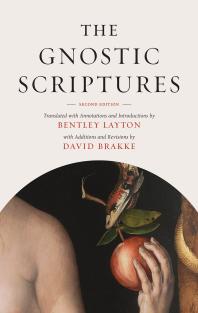 The Gnostic Scriptures is collection of extra-biblical scriptures written by the gnostics, updated with three ancient texts including the recently discovered Gospel of Judas This definitive introduction to the gnostic scriptures provides a crucial look at the theology, religious atmosphere, and literary traditions of ancient Christianity and Hellenistic Judaism. It provides authoritative translations of ancient texts from Greek, Latin, and Coptic, with introductions, bibliographies, and annotations. The texts are organized to reflect the history of gnosticism in the second through fourth centuries CE. This second edition provides updates throughout and adds three new ancient texts, including the recently discovered Gospel of Judas. Student or Faculty Login Required
The Gnostic Scriptures is collection of extra-biblical scriptures written by the gnostics, updated with three ancient texts including the recently discovered Gospel of Judas This definitive introduction to the gnostic scriptures provides a crucial look at the theology, religious atmosphere, and literary traditions of ancient Christianity and Hellenistic Judaism. It provides authoritative translations of ancient texts from Greek, Latin, and Coptic, with introductions, bibliographies, and annotations. The texts are organized to reflect the history of gnosticism in the second through fourth centuries CE. This second edition provides updates throughout and adds three new ancient texts, including the recently discovered Gospel of Judas. Student or Faculty Login Required
 The Oxford Handbook of Early Christian Apocrypha addresses issues and themes that arise in the study of early Christian apocryphal literature. Part I consists of authoritative surveys of the main branches of apocryphal literature (gospels, acts, epistles, apocalypses, and related literature) and Part II considers key issues that they raise. These include their contribution to our understanding of developing interpretations of Jesus, the apostles, and other important figures such as Mary. It also shows how these texts contribute to our knowledge of Jewish-Christian relations, Christian worship, and developing understandings of asceticism, gender, and sexuality, etc. The volume also considers questions such as which ancient readers read Early Christian Apocrypha, their place in Christian spirituality, and their place in contemporary popular culture and contemporary theological discourse. Student or Faculty Login Required
The Oxford Handbook of Early Christian Apocrypha addresses issues and themes that arise in the study of early Christian apocryphal literature. Part I consists of authoritative surveys of the main branches of apocryphal literature (gospels, acts, epistles, apocalypses, and related literature) and Part II considers key issues that they raise. These include their contribution to our understanding of developing interpretations of Jesus, the apostles, and other important figures such as Mary. It also shows how these texts contribute to our knowledge of Jewish-Christian relations, Christian worship, and developing understandings of asceticism, gender, and sexuality, etc. The volume also considers questions such as which ancient readers read Early Christian Apocrypha, their place in Christian spirituality, and their place in contemporary popular culture and contemporary theological discourse. Student or Faculty Login Required

Anchor Yale Bible Commentaries span over 86 volumes and is one of the most trusted and long-running scholarly commentaries series for Biblical Studies scholars. The commentaries draw from the wisdom and resources of Protestant, Catholic, and Jewish scholars from around the world and includes a book-by-book translation and exegesis of the Hebrew Bible, the New Testament, and the Apocrypha to make available all the significant historical and linguistic knowledge which bears on the interpretation of the Bible. Student or Faculty Login Required
 "The Women's Bible Commentary is a trusted, classic resource for biblical scholarship, written by some of the best feminist scholars in the field today. This twentieth anniversary edition features brand new or thoroughly revised essays to reflect newer thinking in feminist interpretation and hermeneutics. It comprises commentaries on every book of the Bible, including the apocryphal books; essays on the reception history of women in the Bible; and essays on feminist critical method. The contributors raise important questions and explore the implications of how women and other marginalized people are portrayed in biblical texts, looking specifically at gender roles, sexuality, political power, and family life, while challenging long-held assumptions. This commentary brings modern critical methods to bear on the history, sociology, anthropology, and literature of the relevant time periods to illuminate the context of these biblical portrayals and challenges readers to new understandings." (Description from publisher) Student or Faculty Login Required
"The Women's Bible Commentary is a trusted, classic resource for biblical scholarship, written by some of the best feminist scholars in the field today. This twentieth anniversary edition features brand new or thoroughly revised essays to reflect newer thinking in feminist interpretation and hermeneutics. It comprises commentaries on every book of the Bible, including the apocryphal books; essays on the reception history of women in the Bible; and essays on feminist critical method. The contributors raise important questions and explore the implications of how women and other marginalized people are portrayed in biblical texts, looking specifically at gender roles, sexuality, political power, and family life, while challenging long-held assumptions. This commentary brings modern critical methods to bear on the history, sociology, anthropology, and literature of the relevant time periods to illuminate the context of these biblical portrayals and challenges readers to new understandings." (Description from publisher) Student or Faculty Login Required
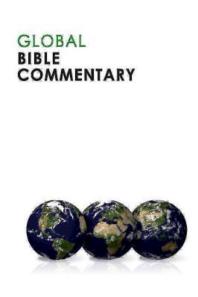 The Global Bible Commentary invites its users to expand their horizon by reading the Bible with scholars from all over the world and from different religious persuasions. Scholars from diverse social locations in every continent bring their distinctive context to bear on the act of interpreting. In so doing, they shed light on the biblical texts. The resulting critical dialogue with the Bible exposes the oppressive as well as the liberating dynamics of the texts while at the same time showing how the Bible might address the social, political, cultural, and economic dynamics of our world today. This collection can change the way you read the Bible-scholars and students, clergy and laity alike. (Description from publisher) Student or Faculty Login Required
The Global Bible Commentary invites its users to expand their horizon by reading the Bible with scholars from all over the world and from different religious persuasions. Scholars from diverse social locations in every continent bring their distinctive context to bear on the act of interpreting. In so doing, they shed light on the biblical texts. The resulting critical dialogue with the Bible exposes the oppressive as well as the liberating dynamics of the texts while at the same time showing how the Bible might address the social, political, cultural, and economic dynamics of our world today. This collection can change the way you read the Bible-scholars and students, clergy and laity alike. (Description from publisher) Student or Faculty Login Required
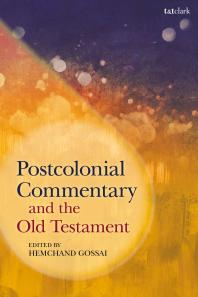 Postcolonial Commentary and the Old Testament provides a wide range of postcolonial interpretations of and commentaries upon significant texts in the Hebrew Bible. The volume intersects with the work of the key theorists in postcolonial studies such as Fanon, Senghor, Said and Spivak as well as with scholars such as Sugirtharajah, Kwok Pui-lan, and Segovia who have applied this theory to biblical studies. Texts have been chosen specifically for their relevance to postcolonial discourse, rather than seeking to cover each biblical document. This volume is designed to demonstrate how historical criticism, postmodernism, and the important concerns of postcolonial readings may be integrated to obtain an informed explanation of the Hebrew Bible and the writings of early Judaism. The chapters are written by scholars who represent a spectrum of national, indigenous, and diasporic contexts. (Description from publisher) Student or Faculty Login Required
Postcolonial Commentary and the Old Testament provides a wide range of postcolonial interpretations of and commentaries upon significant texts in the Hebrew Bible. The volume intersects with the work of the key theorists in postcolonial studies such as Fanon, Senghor, Said and Spivak as well as with scholars such as Sugirtharajah, Kwok Pui-lan, and Segovia who have applied this theory to biblical studies. Texts have been chosen specifically for their relevance to postcolonial discourse, rather than seeking to cover each biblical document. This volume is designed to demonstrate how historical criticism, postmodernism, and the important concerns of postcolonial readings may be integrated to obtain an informed explanation of the Hebrew Bible and the writings of early Judaism. The chapters are written by scholars who represent a spectrum of national, indigenous, and diasporic contexts. (Description from publisher) Student or Faculty Login Required
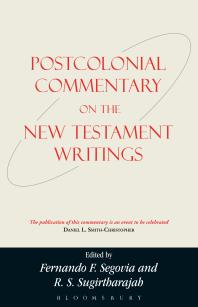 Postcolonial Commentary on the New Testament Writings represents a critical benchmark in postcolonial biblical criticism. Indeed, the Commentary stands as the most comprehensive application to date of postcolonial criticism to the biblical texts, with its focus on the entire corpus of the New Testament. It places the reality and ramifications of imperial-colonial frameworks and relations at the centre of biblical criticism. The various entries pursue their analysis across a broad range of concerns and through a number of different approaches. They show, among other things, how texts and interpretations construct and/or relate to their respective imperial-colonial contexts; foreground literary, rhetorical, and ideological marks of coloniality and postcoloniality in both texts and interpretations; reveal how postcolonial reading strategies disrupt and destabilize hegemonic biblical criticism; and engage in critical dialogue with the visions and projects identified in texts as well as in interpretations. (Description from publisher) Student or Faculty Login Required
Postcolonial Commentary on the New Testament Writings represents a critical benchmark in postcolonial biblical criticism. Indeed, the Commentary stands as the most comprehensive application to date of postcolonial criticism to the biblical texts, with its focus on the entire corpus of the New Testament. It places the reality and ramifications of imperial-colonial frameworks and relations at the centre of biblical criticism. The various entries pursue their analysis across a broad range of concerns and through a number of different approaches. They show, among other things, how texts and interpretations construct and/or relate to their respective imperial-colonial contexts; foreground literary, rhetorical, and ideological marks of coloniality and postcoloniality in both texts and interpretations; reveal how postcolonial reading strategies disrupt and destabilize hegemonic biblical criticism; and engage in critical dialogue with the visions and projects identified in texts as well as in interpretations. (Description from publisher) Student or Faculty Login Required
 The Africana Bible: Reading Israel's Scriptures from Africa and the African Diaspora features a critical commentary on every book of the Hebrew Bible, the Apocrypha, and Pseudepigrapha that are authoritative for many in African and African-diasporan communities worldwide. It highlights issues of concern to the global Black community (such as globalization and the colonial legacy) and the distinctive norms of interpretation in African and African Diasporan settings. Student or Faculty Login Required
The Africana Bible: Reading Israel's Scriptures from Africa and the African Diaspora features a critical commentary on every book of the Hebrew Bible, the Apocrypha, and Pseudepigrapha that are authoritative for many in African and African-diasporan communities worldwide. It highlights issues of concern to the global Black community (such as globalization and the colonial legacy) and the distinctive norms of interpretation in African and African Diasporan settings. Student or Faculty Login Required
The HarperCollins Bible Dictionary [via Bible Odyssey] is a complete, up-to-date, and accessible guide for the study of the Bible available today. Perfect for church Bible study groups, home schools, high schools, colleges, or personal study, this edition contains all the important names, places, and subjects that make Bible study come to life, including the patriarchs, judges, kings, and prophets, and the world of the New Testament and the early church. Other significant topics include the Dead Sea Scrolls, the Nag Hammadi Library, the archaeology of the biblical world, and the history of the English Bible. The condensed HarperCollins Bible Dictionary includes over 3,000 lively, informative, and easy-to-use entries, a helpful pronunciation guide, maps, informative charts, graphs, timelines, photos and illustrations. (Description from publisher)

The Anchor Yale Bible Dictionary is a six-volume dictionary of the Bible with over 6,000 entries, 7,000,000 words, and nearly 1,000 contributors. It offers up-to-date and comprehensive treatment of biblical subjects and topics and also includes endpaper maps of the Near Eastern world keyed to text for quick location of archaeological and biblical sites and Articles on pseudepigraphic and apocryphal texts, Nag Hammadi tractates, and individual Dead Sea Scrolls, including the most recently published sectarian Dead Sea Scrolls as well as articles illustrating the literary artistry of the biblical text. Student or Faculty Login Required

Dictionary of Nature Imagery in the Bible is targeted at biblical scholars and students of Bible world wide. The Dictionary further gives professionals in the various fields of life & natural sciences and ecology in general access to the use of nature imagery in the literary texts of the Bible. The corpus for DNI Bible is mainly the Hebrew Bible, although Second Temple literature and the New Testament are also addressed.
Bible Hub Online provides search and study tools including parallel texts, cross references, and commentaries. This site provides quick access to topical studies, interlinears, sermons, Strong's and many more resources.
 Bible Study Tools Interlinear Bible provides Interlinear translations for both the King James and New American Standard Bible using Strong’s Concordance.
Bible Study Tools Interlinear Bible provides Interlinear translations for both the King James and New American Standard Bible using Strong’s Concordance.
 The Oxford Handbook of the Reception History of the Bible presents reception history as an enterprise (not a method) that questions and understands tradition afresh. In recent decades, reception history has become an increasingly important and controversial topic of discussion in biblical studies. Rather than attempting to recover the original meaning of biblical texts, reception history focuses on exploring the history of interpretation. The breadth of material and hermeneutical issues that reception history engages with questions any narrow understanding of the history of the Bible and its effects on faith communities. The challenge that reception history faces is to explore tradition without either reducing its meaning to what faith communities think is important, or merely offering anthologies of interesting historical interpretations. Student or Faculty Login Required
The Oxford Handbook of the Reception History of the Bible presents reception history as an enterprise (not a method) that questions and understands tradition afresh. In recent decades, reception history has become an increasingly important and controversial topic of discussion in biblical studies. Rather than attempting to recover the original meaning of biblical texts, reception history focuses on exploring the history of interpretation. The breadth of material and hermeneutical issues that reception history engages with questions any narrow understanding of the history of the Bible and its effects on faith communities. The challenge that reception history faces is to explore tradition without either reducing its meaning to what faith communities think is important, or merely offering anthologies of interesting historical interpretations. Student or Faculty Login Required
 Presenting history as a continuous and evolutionary process, the Cambridge Histories offer a big picture perspective in each subject area, making them essential reading for anyone researching or studying a subject that has an historical element. Student or Faculty Login Required
Presenting history as a continuous and evolutionary process, the Cambridge Histories offer a big picture perspective in each subject area, making them essential reading for anyone researching or studying a subject that has an historical element. Student or Faculty Login Required
The New Cambridge History of the Bible Volume 1, From the Beginnings to 600
The New Cambridge History of the Bible Volume 2, From 600 to 1450
The New Cambridge History of the Bible Volume 3, From 1450 to 1750
The New Cambridge History of the Bible Volume 4, From 1750 to the Present

The Oxford Handbook of Early Christian Studies responds to and celebrates the explosion of research in this inter-disciplinary field over recent decades. As a one-volume reference work, it provides an introduction to the academic study of early Christianity (c. 100–600 AD) and examines the vast geographical area impacted by the early church, in western and eastern late antiquity. The book is thematically arranged to encompass history, literature, thought, practices, and material culture. It contains authoritative and up-to-date surveys of current thinking and research in the various sub-specialties of early Christian studies, written by leading figures in the discipline. The articles orientate readers to a given topic, as well as to the trajectory of research developments over the past 30–50 years within the scholarship itself. Guidance for future research is also given. Each article points the reader towards relevant forms of extant evidence (texts, documents, or examples of material culture), as well as to the appropriate research tools available for the area. Student or Faculty Login Required
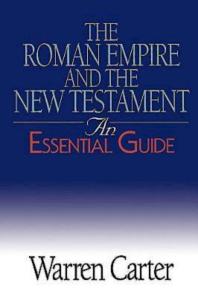 The Roman Empire and the New Testament: An Essential Guide is an introduction to Roman society, culture, law, politics, religion, and daily life as they relate to the study of the New Testament. The Roman Empire formed the central context in which the New Testament was written. Anyone who wishes to understand the New Testament texts must become familiar with the political, economic, societal, cultural, and religious aspects of Roman rule.This book will help the reader see how social structures and daily practices in the Roman world illumine so much of the content of the New Testament message. FoBrief in presentation yet broad in scope, The Roman Empire and the New Testament: An Essential Guide will introduce students to the information and ideas essential to coming to grips with the world in which early Christianity was born. Student or Faculty Login Required
The Roman Empire and the New Testament: An Essential Guide is an introduction to Roman society, culture, law, politics, religion, and daily life as they relate to the study of the New Testament. The Roman Empire formed the central context in which the New Testament was written. Anyone who wishes to understand the New Testament texts must become familiar with the political, economic, societal, cultural, and religious aspects of Roman rule.This book will help the reader see how social structures and daily practices in the Roman world illumine so much of the content of the New Testament message. FoBrief in presentation yet broad in scope, The Roman Empire and the New Testament: An Essential Guide will introduce students to the information and ideas essential to coming to grips with the world in which early Christianity was born. Student or Faculty Login Required
 They Were All Together in One Place?: Toward Minority Biblical Criticism brings critics from three major racial/ethnic minority communities in the United States African American, Asian American, and Latino/a American focus on the problematic of race and ethnicity in the Bible and in contemporary biblical interpretation. With keen eyes on both ancient text and contemporary context, contributors pay close attention to how racial/ethnic dynamics intersect with other differential relations of power such as gender, class, sexuality, and colonialism. In groundbreaking interaction, they also consider their readings alongside those of other racial/ethnic minority communities. The volume includes an introduction pointing out the crucial role of this work within minority criticism by looking at its historical trajectory, critical findings, and future directions. Student or Faculty Login Required
They Were All Together in One Place?: Toward Minority Biblical Criticism brings critics from three major racial/ethnic minority communities in the United States African American, Asian American, and Latino/a American focus on the problematic of race and ethnicity in the Bible and in contemporary biblical interpretation. With keen eyes on both ancient text and contemporary context, contributors pay close attention to how racial/ethnic dynamics intersect with other differential relations of power such as gender, class, sexuality, and colonialism. In groundbreaking interaction, they also consider their readings alongside those of other racial/ethnic minority communities. The volume includes an introduction pointing out the crucial role of this work within minority criticism by looking at its historical trajectory, critical findings, and future directions. Student or Faculty Login Required
Voices From the Margin: Interpreting the Bible in the Third World is the new edition of a classic in Biblical Studies and theology and includes a new introduction and afterword calling attention to new developments in biblical interpretation; eleven new essays offering Global South applications of Biblical passages and teachings; and essays specific to given cultures, as well as essays that offer more general analysis of Biblical passages with insights into economics and social conditions in the nations of the Global South. Student or Faculty Login Required
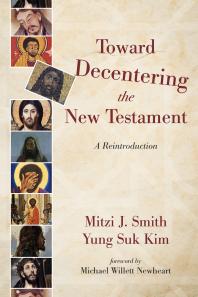 Toward Decentering the New Testament is the first introductory text to the New Testament written by an African American woman biblical scholar and an Asian-American male biblical scholar. This text privileges the voices, scholarship, and concerns of minoritized nonwhite peoples and communities. It is written from the perspectives of minoritized voices. The first few chapters cover issues such as biblical interpretation, immigration, Roman slavery, intersectionality, and other topics. Questions raised throughout the text focus readers on relevant contemporary issues and encourage critical reflection and dialogue between student-teachers and teacher-students. Student or Faculty Login Required
Toward Decentering the New Testament is the first introductory text to the New Testament written by an African American woman biblical scholar and an Asian-American male biblical scholar. This text privileges the voices, scholarship, and concerns of minoritized nonwhite peoples and communities. It is written from the perspectives of minoritized voices. The first few chapters cover issues such as biblical interpretation, immigration, Roman slavery, intersectionality, and other topics. Questions raised throughout the text focus readers on relevant contemporary issues and encourage critical reflection and dialogue between student-teachers and teacher-students. Student or Faculty Login Required
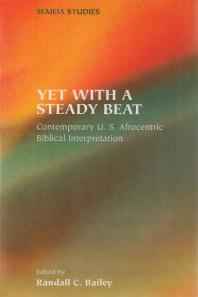 Yet with a Steady Beat : U. S. Afrocentric Biblical Interpretation exemplifies new directions being taken by biblical scholars using new literary, historical, and sociological critical tools to explore issues of concern to their communities and thus poses a challenge to others in the discipline to broaden the canons of interpretation and sources. The essays address issues of cultural criticism, utilization of Black religious sources such as the Negro spirituals and sermons, histories of struggles of Afro-diasporan peoples, and ideological criticism in interpreting the biblical text.This collection of essays exemplifies new directions being taken by biblical scholars using new literary, historical, and sociological critical tools to explore issues of concern to their communities and thus poses a challenge to others in the discipline to broaden the canons of interpretation and sources.
Yet with a Steady Beat : U. S. Afrocentric Biblical Interpretation exemplifies new directions being taken by biblical scholars using new literary, historical, and sociological critical tools to explore issues of concern to their communities and thus poses a challenge to others in the discipline to broaden the canons of interpretation and sources. The essays address issues of cultural criticism, utilization of Black religious sources such as the Negro spirituals and sermons, histories of struggles of Afro-diasporan peoples, and ideological criticism in interpreting the biblical text.This collection of essays exemplifies new directions being taken by biblical scholars using new literary, historical, and sociological critical tools to explore issues of concern to their communities and thus poses a challenge to others in the discipline to broaden the canons of interpretation and sources.
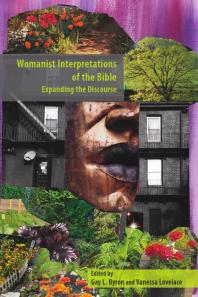 Womanist Interpretations of the Bible: Expanding the Discourse brings together cross-generational and cross-cultural readings of the Bible and other sacred sources by including scholars from the Caribbean, India, and Africa who have not traditionally fit into the narrow U.S., African American paradigm for understanding womanist biblical interpretation. The volume engages the reader in a wide range of interdisciplinary methods and perspectives, such as gender and feminist criticism, social-scientific methods, post-colonial and psychoanalytical theory that emphasize the inherently intersectional dynamics of race, ethnicity, and class at work in womanist thought and analysis.
Womanist Interpretations of the Bible: Expanding the Discourse brings together cross-generational and cross-cultural readings of the Bible and other sacred sources by including scholars from the Caribbean, India, and Africa who have not traditionally fit into the narrow U.S., African American paradigm for understanding womanist biblical interpretation. The volume engages the reader in a wide range of interdisciplinary methods and perspectives, such as gender and feminist criticism, social-scientific methods, post-colonial and psychoanalytical theory that emphasize the inherently intersectional dynamics of race, ethnicity, and class at work in womanist thought and analysis.
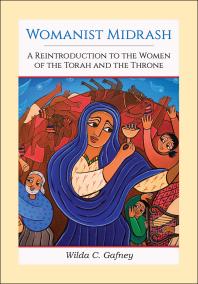 Womanist Midrash is an in-depth and creative exploration of the well- and lesser-known women of the Hebrew Scriptures. Using her own translations, Gafney offers a midrashic interpretation of the biblical text that is rooted in the African American preaching tradition to tell the stories of a variety of female characters, many of whom are often overlooked and nameless. Gafney employs a solid understanding of womanist and feminist approaches to biblical interpretation and the sociohistorical culture of the ancient Near East. This unique and imaginative work is grounded in serious scholarship and will expand conversations about feminist and womanist biblical interpretation.
Womanist Midrash is an in-depth and creative exploration of the well- and lesser-known women of the Hebrew Scriptures. Using her own translations, Gafney offers a midrashic interpretation of the biblical text that is rooted in the African American preaching tradition to tell the stories of a variety of female characters, many of whom are often overlooked and nameless. Gafney employs a solid understanding of womanist and feminist approaches to biblical interpretation and the sociohistorical culture of the ancient Near East. This unique and imaginative work is grounded in serious scholarship and will expand conversations about feminist and womanist biblical interpretation.
Latino/a Biblical Hermeneutics : Problematics, Objectives, Strategies contains essays that are profoundly theological and resolutely social In this collection of essays, contributors seek to analyze the vision of the critical task espoused by Latino/a critics. The project explores how such critics approach their vocation as critics in the light of their identity as members of the Latino/a experience and reality. A variety of critics—representing a broad spectrum of the Latino/a American formation, along various axes of identity—address the question in whatever way they deem appropriate: What does it mean to be a Latino/a critic? Student or Faculty Login Required
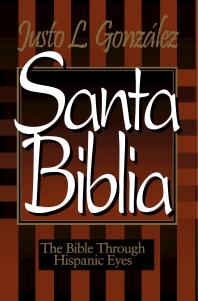 Santa Biblia: The Bible Through Hispanic Eyes explores how a Hispanic perspective illuminates the biblical text in ways that will be valuable not only for Latino readers but also for the church at large. Introducing five "paradigms" for Latino biblical interpretation, Gonzalez discusses theory and provides concrete examples of biblical texts that gain new meaning when read from a different perspective. Student or Faculty Login Required
Santa Biblia: The Bible Through Hispanic Eyes explores how a Hispanic perspective illuminates the biblical text in ways that will be valuable not only for Latino readers but also for the church at large. Introducing five "paradigms" for Latino biblical interpretation, Gonzalez discusses theory and provides concrete examples of biblical texts that gain new meaning when read from a different perspective. Student or Faculty Login Required
The Oxford Handbook of Feminist Approaches to the Hebrew Bible brings together thirty-seven essential essays written by leading international scholars, examining crucial points of analysis within the field of feminist Hebrew Bible studies. Organized into four major areas — globalization, neoliberalism, media, and intersectionality, the essays provide vibrant, relevant, and innovative contributions to the field. The topics of analysis focus heavily on gender and queer identity, with essays touching on African, Korean, and European feminist hermeneutics, womanist and interreligious readings, ecofeminist and animal biblical studies, migration biblical studies, the role of gender binary voices in evangelical-egalitarian approaches, oand the examination of scripture in light of trans women’s voices. The volume includes essays examining the Old Testament as recited in music, literature, film, and video games. In short, the book offers a vision for feminist biblical scholarship beyond the hegemonic status quo prevalent in the field of biblical studies, in many religious organizations and institutions that claim the Bible as a sacred text, and among the public that often mentions the Bible to establish religious, political, and socio-cultural restrictions for gendered practices. Student or Faculty Login Required
Noting that the ways of interpreting the Bible now practiced in the West are patriarchal and oppressive of those in other parts of the world, Postcolonial Feminist Interpretation of the Bible offers an alternative interpretation that attends to and respects needs of women in the two-thirds world. In a provocative and insightful reading of the book of Matthew, she shows us how to read the Bible as decolonizing rather than imperialist literature. Student or Faculty Login Required
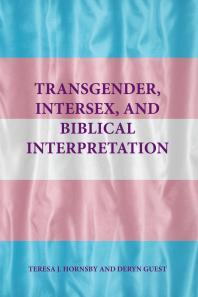 A call for "trans literacy" within biblical scholarship. In Transgender, Intersex, and Biblical Interpretation Hornsby and Guest introduce readers to terms for the various identities of trans people and how the Bible can be an affirmation of those deemed sexually other by communities. This book offers readings of well known (e.g., Gen 1; Revelation) and not so well known (2 Sam 6; Jer 38) narratives to illustrate that the Bible has been translated and interpreted with a bias that makes heterosexuality and a two sex, two gender system natural, and thus divinely ordained. The authors present examples that show gender was never a binary, and in the Bible gender and sex are always dynamic categories that do, and must, transition. Student or Faculty Login Required
A call for "trans literacy" within biblical scholarship. In Transgender, Intersex, and Biblical Interpretation Hornsby and Guest introduce readers to terms for the various identities of trans people and how the Bible can be an affirmation of those deemed sexually other by communities. This book offers readings of well known (e.g., Gen 1; Revelation) and not so well known (2 Sam 6; Jer 38) narratives to illustrate that the Bible has been translated and interpreted with a bias that makes heterosexuality and a two sex, two gender system natural, and thus divinely ordained. The authors present examples that show gender was never a binary, and in the Bible gender and sex are always dynamic categories that do, and must, transition. Student or Faculty Login Required
 The Oxford Handbook of New Testament, Gender, and Sexuality provides a roadmap to the relevant problems, debates, and issues that animate the study of sex, gender, sexuality, and sexual difference in early Christianity. Over several decades, scholarship in the New Testament and early Christianity has drawn attention to the ways in which ancient Mediterranean conceptions of embodiment, sexual difference, and desire were fundamentally different from modern ones. But scholars have also sometimes pointed to important lines of historical continuity or genealogical connection between the past and the present. Indeed, these textual materials have played a foundational role in the history of reflection on issues of gender and sexuality in Western thought and continue to impact cultural and religious debates today. Leading scholars in the field offer original contributions by way of synthesis, critical interrogation, and proposals for future research trajectories. Student or Faculty Login Required
The Oxford Handbook of New Testament, Gender, and Sexuality provides a roadmap to the relevant problems, debates, and issues that animate the study of sex, gender, sexuality, and sexual difference in early Christianity. Over several decades, scholarship in the New Testament and early Christianity has drawn attention to the ways in which ancient Mediterranean conceptions of embodiment, sexual difference, and desire were fundamentally different from modern ones. But scholars have also sometimes pointed to important lines of historical continuity or genealogical connection between the past and the present. Indeed, these textual materials have played a foundational role in the history of reflection on issues of gender and sexuality in Western thought and continue to impact cultural and religious debates today. Leading scholars in the field offer original contributions by way of synthesis, critical interrogation, and proposals for future research trajectories. Student or Faculty Login Required

"Since biblical times, the Torah has been divided into sections which are read each week on a set yearly calendar. Following this practice, many other calendars have been created to help communities of learners work through specific texts together."

Hebcal is a free Jewish calendar and holiday web site. Hebcal offer a powerful custom Jewish calendar tool that lets you generate a list of Jewish holidays for any year (past, present or future). Also available are a Hebrew date converter, Shabbat candle lighting times and Torah readings (both full kriyah and triennial system), and a page to look up yahrzeits, birthdays and anniversaries.
A lectionary is a collection of readings from the Bible arranged and intended for public reading during worship and is often scheduled over an extended period of time.
A lectionary is a collection of readings from the Bible arranged and intended for public reading during worship and is often scheduled over an extended period of time.

The Coptic Orthodox Lectionary is on a four-year cycle and contains readings for Sundays, the Weekdays, the Great Lent, Holy Week, and the Pentecost. The readings center around the life of Jesus and saints.
A lectionary is a collection of readings from the Bible arranged and intended for communal reading during worship and is often scheduled over an extended period of time.
A lectionary is a collection of readings from the Bible arranged and intended for public reading during worship and is often scheduled over an extended period of time.

The Revised Common Lectionary is a three-year cycle of weekly lections used to varying degrees by the vast majority of mainline Protestant churches in Canada and the United States. The RCL is built around the seasons of the Church Year, and includes four lections for each Sunday, as well as additional readings for major feast days.

The Text this Week features a wide variety of resources for study and liturgy based on the 3-year Revised Common Lectionary cycle from a diverse variety of resources for scripture study, reflection and liturgy. The purpose of this website is to provide links to resources for study, reflection and liturgy which correspond to the RCL readings you may be using for study, teaching & preaching
Preaching God's Transforming Justice : A Lectionary Commentary helps the preacher identify and reflect theologically and ethically on the social implications of the biblical readings in the Revised Common Lectionary. In addition to providing commentary for each day in the lectionary calendar, this series introduces twenty-two Holy Days for Justice. These days are intended to enlarge the church's awareness of God's call for justice and of the many ways that call comes to the church and world today. The days include Martin Luther King Jr. Day, Earth Day, World AIDS Day, International Women's Day, Cesar Chavez Day, Yom HaShoah, and Juneteenth. For each of the lectionary days and Holy Days for Justice there is an essay that helps the preacher integrate a variety of social justice concerns (including racial/ethnic issues, sexism, classism, ecology, and violence) into their preaching. The contributors are a diverse group of homileticians, pastors, biblical scholars, theologians, and social activists.
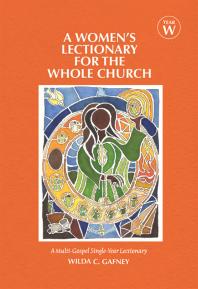 A Women’s Lectionary for the Whole Church answers the question, what would it look like if women built a lectionary focusing on women’s stories? What does it look like to tell the good news through the stories of women who are often on the margins of scripture and often set up to represent bad news? How would a lectionary centering women’s stories, chosen with womanist and feminist commitments in mind, frame the presentation of the scriptures for proclamation and teaching? The scriptures are androcentric, male-focused, as is the lectionary that is dependent upon them. As a result, many congregants know only the biblical men's stories told in the Sunday lectionary read in their churches. A more expansive, more inclusive lectionary will remedy that by introducing readers and hearers of scripture to “women's stories” in the scriptures. Student or Faculty Login Required
A Women’s Lectionary for the Whole Church answers the question, what would it look like if women built a lectionary focusing on women’s stories? What does it look like to tell the good news through the stories of women who are often on the margins of scripture and often set up to represent bad news? How would a lectionary centering women’s stories, chosen with womanist and feminist commitments in mind, frame the presentation of the scriptures for proclamation and teaching? The scriptures are androcentric, male-focused, as is the lectionary that is dependent upon them. As a result, many congregants know only the biblical men's stories told in the Sunday lectionary read in their churches. A more expansive, more inclusive lectionary will remedy that by introducing readers and hearers of scripture to “women's stories” in the scriptures. Student or Faculty Login Required
"The Revised Common Lectionary, a service of Vanderbilt Divinity Library, is a three-year cycle of weekly lections used to varying degrees by the vast majority of mainline Protestant churches in Canada and the United States. The RCL is built around the seasons of the Church Year, and includes four lections for each Sunday, as well as additional readings for major feast days. During most of the year, the lections are: a reading from the Hebrew Bible, a Psalm, a reading from the Epistles, and a Gospel reading. During the season of Easter, the Hebrew Bible lection is usually replaced with one from the Acts of the Apostles. The lections from the Hebrew Bible are sometimes chosen from the Apocrypha."
 Containing over 2 million articles, Atlas Religion Database with AtlaSerials is the largest journal database dedicated to the academic study of religion available to researchers. Find articles on specific passages from the Hebrew Bible and New Testament using the Atla Hierarchical Scripture Authority. To access the Scripture Authority, select "Scriptures" from the top left menu when signed in to Atla Religion Database (link below). Use the hierarchical index to select to expand any Bible book, then chapter, then verse to narrow down to the specific passage you would like articles about. Articles can also be viewed at the book or chapter level by clicking the hyperlinked titles in lieu of using the expand options. For more information on using Advanced Search Features and the Bible Citation Index, visit the Scripture Search page of the "Using Atla Religion Database with AtlaSerials" guide. If you find an item in Atla you would like to access that is not full-text, click the "Request Article via Interlibrary Loan" button below and we will attempt to acquire the article through interlibrary loan.
Containing over 2 million articles, Atlas Religion Database with AtlaSerials is the largest journal database dedicated to the academic study of religion available to researchers. Find articles on specific passages from the Hebrew Bible and New Testament using the Atla Hierarchical Scripture Authority. To access the Scripture Authority, select "Scriptures" from the top left menu when signed in to Atla Religion Database (link below). Use the hierarchical index to select to expand any Bible book, then chapter, then verse to narrow down to the specific passage you would like articles about. Articles can also be viewed at the book or chapter level by clicking the hyperlinked titles in lieu of using the expand options. For more information on using Advanced Search Features and the Bible Citation Index, visit the Scripture Search page of the "Using Atla Religion Database with AtlaSerials" guide. If you find an item in Atla you would like to access that is not full-text, click the "Request Article via Interlibrary Loan" button below and we will attempt to acquire the article through interlibrary loan.
 SBL Central is a research platform to support participants in the entire interdisciplinary ecosystem of biblical, religious, and theological studies, including scholars, students, publishers, publishing associations, and libraries and their institutions. While material found on SBL Central cannot be accessed directly from the SBL search, Wiggin Library most likely can provide access to through our library collection and digital resources. If you find an item in SBL you would like to access, click the "Request Article via Interlibrary Loan" button below and we will attempt to acquire the article through interlibrary loan.
SBL Central is a research platform to support participants in the entire interdisciplinary ecosystem of biblical, religious, and theological studies, including scholars, students, publishers, publishing associations, and libraries and their institutions. While material found on SBL Central cannot be accessed directly from the SBL search, Wiggin Library most likely can provide access to through our library collection and digital resources. If you find an item in SBL you would like to access, click the "Request Article via Interlibrary Loan" button below and we will attempt to acquire the article through interlibrary loan.
Most biblical scholarship uses the Society of Biblical Literature (SBL) Style guide. A student guide to SBL can be found here. The Chicago Manual of Style recommends using SBL when citing and quoting the Bible.

Meadville Lombard Wiggin Library
180 N. Wabash Ave.
Suite 625
Chicago, IL 60601
Library and Archives Phone: 312-546-6488 Library Email: library@meadville.edu Archives Email: archives@meadville.edu